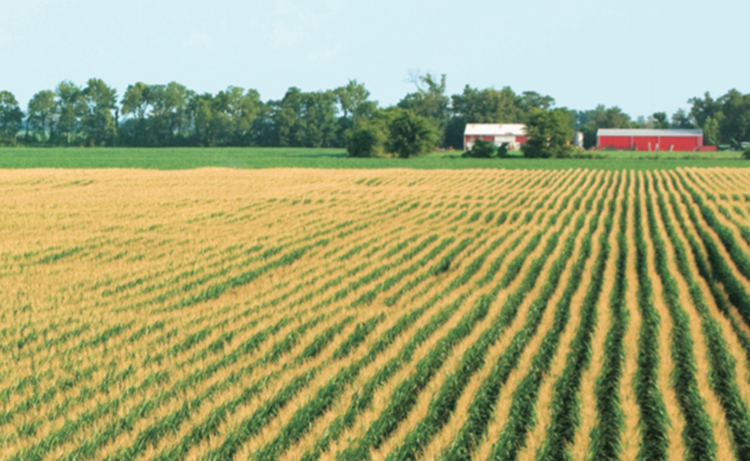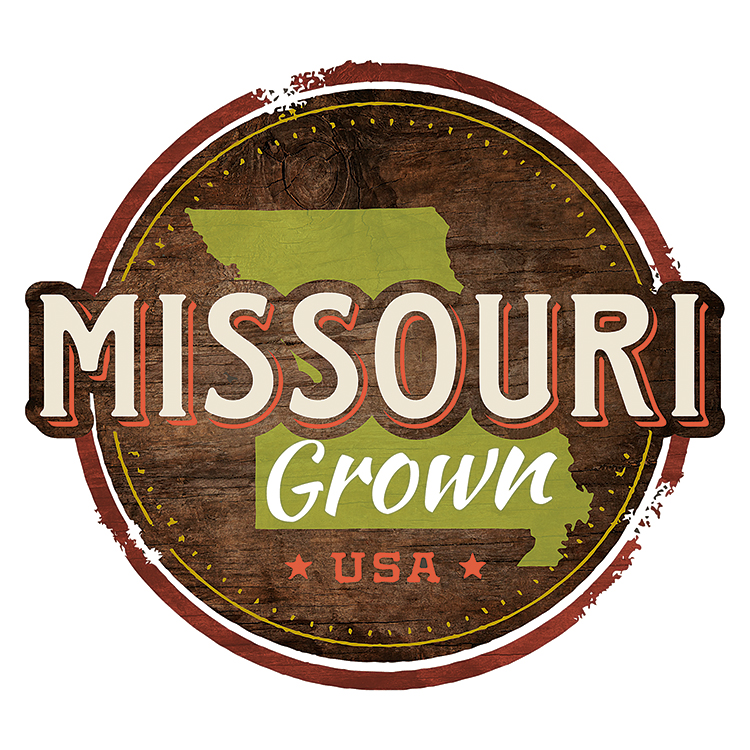Home > Missouri > Missouri Crops & Livestock > An Overview of Missouri Agriculture
An Overview of Missouri Agriculture
 When it comes to agriculture, the Show-Me State lives up to its nickname. Missouri’s nearly 100,000 farms span more than 28 million acres, where hardworking farmers produce
When it comes to agriculture, the Show-Me State lives up to its nickname. Missouri’s nearly 100,000 farms span more than 28 million acres, where hardworking farmers produce
top crops and commodities, such as soybeans, cattle and calves, corn, hogs and broiler chickens.
In 2014, the state raked in an impressive $12.8 billion in farm receipts from all agricultural commodities. Missouri agriculture feeds the world, too, with top agricultural exports including corn, soybeans, soybean meal, feed and pork that same year. Total exports brought $4.35 billion to Missouri’s economy.
But while the state’s agriculture is diverse in its offerings – from crops to agribusinesses to exports to biofuel – none of the pieces could exist on their own. All aspects of Missouri agriculture unite to form “one agriculture,” allowing the state to thrive. That theme is celebrated throughout this magazine.
Farmers like the Hurst family of Tarkio are just one of many who uphold the idea of “one agriculture.” The farm in Northwest Missouri is owned by the family, which consists of the founding couple, Blake and Julie, their two daughters, son and their spouses. They started out by opening a greenhouse business in 1982 with just a few bedding plants. The business has since grown to nearly 2 acres of greenhouse space with 15 seasonal employees.
While their business is a top priority, the Hursts are also involved in the ag community.
Blake has served as president of the Missouri Farm Bureau since 2010. In addition to what’s grown in the greenhouse, the family grows corn and soybeans and has been involved in both the National Corn Growers Association and Missouri Soybeans.
Many other Missouri farm families take after the Hursts, showing that advocating for agriculture and staying involved is just as important for progress as planting the crops.
One agriculture encompasses all Missourians, farmers, ranchers and consumers. It demonstrates the unity in our industry today – we are all headed in the same direction, telling the positive stories of Missouri agriculture every day.
 GMOs: Safe to Eat
GMOs: Safe to Eat
Genetically engineered crops, also known as GMOs (genetically modified organisms), are safe to eat, according to an extensive analysis from the National Academies of Sciences, Engineering and Medicine released in May 2016. The crops are not harmful to human health, the report says, and do not cause increases in cancer, obesity or kidney disease, among other health issues.
Not only are genetically engineered crops safe to eat, but also they help farmers across the nation save money. For example, studies show the crops have helped lower pest populations in some regions, particularly in the Midwest.
Additionally, the report – carried out by a group of 50 scientists, researchers and agricultural and industry experts – found that engineered crops are not harmful to the environment.
 Pick Missouri Grown
Pick Missouri Grown
Nowadays, consumers want to eat as local as possible, knowing exactly how their food got from the farm to the plate. Thanks to Missouri Grown – part of the AgriMissouri program – finding products made at home is a piece of cake.
Missouri Grown is the department’s consumer-facing local foods program promoting Missouri grown and made products. From pears to pork, hundreds of fresh, tasty and nutritious products are grown by the men and women of Missouri agriculture. Missouri Grown showcases items grown in the state, using specific marketing efforts and promotional events to relay that information to consumers. When consumers buy local, it keeps dollars in the Missouri economy and supports local farmers.
Learn more about Missouri Grown at MissouriGrownUSA.com.
![missouri agriculture [infographic]](https://eadn-wc01-4177395.nxedge.io/wp-content/uploads/2020/05/Screen-Shot-2016-07-15-at-3.29.06-PM.jpg) Strong Roots
Strong Roots
Working in conjunction with the Missouri Department of Agriculture, the Missouri Agricultural Foundation is committed to keeping the Show-Me State’s ag industry strong and prosperous.
The independent, nonprofit organization formed in May 2015 to support projects promoting agricultural growth in Missouri through agribusiness, agritourism, food safety and other sound agricultural practices.
Some of the organization’s initiatives include beef grants, which fund projects to enhance the beef cattle industry, and the Missouri Agricultural Stewardship Assurance Program (ASAP), which recognizes farmers who are responsible land stewards. The foundation also partners with the Mizzou College of Agriculture, Food and Natural Resources to support the Life Sciences Quest summer camp for urban high school students to learn more about agriculture.
Find more information at missouriagfoundation.org.



